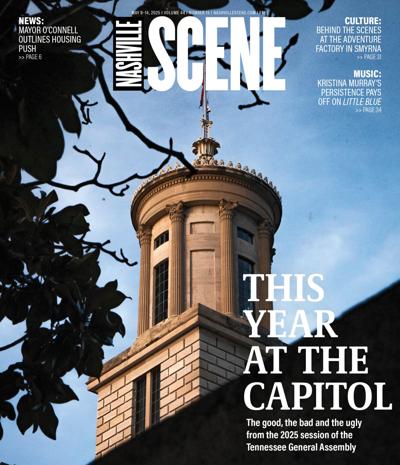On April 22, state lawmakers wrapped the first regular session of the 114th Tennessee General Assembly, bringing an end to roughly three months of legislative business marked by protests, culture-war battles, stalled bills and, yes, some legislation being passed.
Republicans stay united in passing legislation, blocking Democrats’ efforts
In a rapid-fire special session that preceded the year’s regular session, the House and Senate passed Gov. Bill Lee’s Education Freedom Act, creating 20,000 scholarships for students’ private school tuition and other educational expenses. That’s despite the state’s Republican supermajority being split on the governor’s vouchers plan, with 28 members of the Grand Old Party voting against.
Once the regular session got going, state lawmakers passed legislation dissolving the Tennessee Human Rights Commission, preventing the Tennessee Department of Environment and Conservation from classifying a property as a wetland unless it is federally classified as so, invalidating out-of-state driver’s licenses for undocumented immigrants, and prohibiting government departments and public universities from having offices of diversity, equity and inclusion. Republican leaders also passed legislation requiring educational institutions housing minors overnight to segregate bathrooms “by immutable biological sex.” One bill that would have allowed public schools to deny enrollment or charge tuition to undocumented students got an inordinate amount of attention and inspired extensive protests, leading to the arrest of 80-year-old advocate Lynne McFarland. That ultimately did not pass, but it might return next year.
So what, you might find yourself asking, did the state legislature do to help regular Tennesseans? Well, lawmakers did the only thing technically required of them by the Tennessee Constitution: They passed a state budget. A $60 billion budget, to be exact, and one that includes $46 million in disaster relief funding, $78 million (taken from TennCare Shared Savings) for rural hospitals’ uncompensated care and an additional $35.6 million for the state’s Rainy Day Fund. The budget also allows Tennessee State University to utilize funds for operations that had previously been approved only for capital projects — something Democratic Rep. Harold Love of Nashville had pushed for this session as a means of helping the university right-side its finances.
In this week’s issue, we dive into the many pieces of legislation that Tennessee’s elected leaders passed — and didn’t pass — in the 114th session of the General Assembly. —D. PATRICK RODGERS, EDITOR-IN-CHIEF
Nicolle S. Praino contributed reporting.
The Republican supermajority ramped up immigration crackdowns this year. Here’s what did and didn’t become law.
Scant progress on gun safety follows tragic legacies of Nashville school shootings
The legislature made small but impactful changes related to vaccines, caregivers and WHO
Vouchers, cellphone bans and school curriculum changes become law
Bills targeting undocumented students and same-sex marriage seen as ‘opportunities’ to reverse precedent
Republicans praise conservative budget while Democrats point to flaws in the numbers













